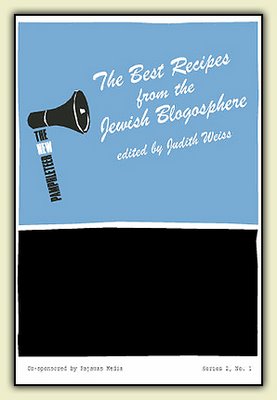“If you expect the unexpected, it is not unexpected: it is expected, I expect.” - The Bard of Affliction
Sometimes I think the Big Guy Upstairs is trying to tell me something, and I’m not sure it is something I want to hear. At least, that’s the feeling I had when I prepared to sit down at my office desk and work on the Torah reading I’m doing tomorrow morning.
Reading Torah takes some preparation. You’re essentially looking at a large parchment scroll filled with carefully handwritten text... but said text consists only of Hebrew consonants. The vowels that enable you to pronounce the words correctly and the cantillation (trope) notes that provide the melody are not there. Even more fun - there’s no punctuation. You have to know the material well enough to fill in the missing data - on the fly.
What’s it like? Here’s an example:
Y HV FTN WLKD DWN THS STRT BFR BT TH PVMNT LWYS STYD BNTH MY FT BFR LL T NC M Y SVRL STRS HGH KNWNG YM N TH STRT WHR Y LV R THR LLC TRS N TH HRT F TWN CN Y HR LRK N NY THR PRT F TWN DS NCHNTMNT PR T F VRY DR N TS JST N TH STRT WHR Y LV ND H TH TWRNG FLNG JST T KNW SMHW Y R NR TH VRPWRNG FLNG THT NY SCND Y MY SDDNLY PPR PPL STP ND STR THY DNT BTHR M FR THRS NWHR LS N RTH THT WLD RTHR B LT TH TM G BY WNT CR F CN B HR N TH STRT WHR Y LV
If you can look at this (apparent) gibberish and belt out a flawless rendition of Lerner and Loewe’s “On The Street Where You Live,” you have some idea of what I’m talking about. Now, pretend your native language uses a different alphabet - to you, Roman letters are just a bit mysterious - and you have an even better idea.
So: preparation. Especially since I’ll be reading the Ten Commandments (the version from Deuteronomy, which differs slightly from the one in Exodus), a reading so central to our religious identity that the congregation stands during its recitation.
What I did not expect was that, as I sat down, I heard a sharp CRACK! and my office chair deposited me on the floor in a heap. Part of the metal frame had given way due to a hitherto invisible stress fracture.
That chair was guaranteed for ten years. It was ten years and six months old. Damn.
The bad news is, I need a new chair. The good news? There’s a tax holiday this weekend, so I can maybe save a few bucks on said new chair. But that’s kinda not good news, because it means the office supply emporium will be packed with eager bargain hunters. Gaaaah.
Well, the chair is broken. At least I’m not. Things could be worse.
Friday, July 31, 2015
Subscribe to:
Post Comments (Atom)




















1 comment:
"Y HV FTN WLKD DWN THS STRT BFR BT TH PVMNT LWYS STYD BNTH MY FT BFR LL T NC M Y SVRL STRS HGH KNWNG YM N TH STRT WHR Y LV R"
HLY FCKNG SHT WHT TH FCK S THT SPPSD T B
You know, back when I took a Bib-lit course, our textbook wasn't nearly so brutal as to inflict an entire paragraph of vowelless verbiage at us. It simply used the example of "Kng Dvd lvd" to show how, without vowels, there could sometimes be problems with deciphering a text's meaning (is it "lived" or "loved"?) if the context in which the text is found is also of no help. "Help" might come in the form of clarifying context, to wit:
Lk Bll Clntn, Kng Dvd lvd hm sm bg-ss, nsty wmn. Nw tht Bthshb, sh hd _ bg, bg ss, bggr thn Km Krdshn's. Kng Dvd sd t hmslf, "Dddy lk, and Dddy gnn ct _ bg, jcy slc fr hmslf!"
With that context in place, "lvd" is obviously "loved."
Post a Comment